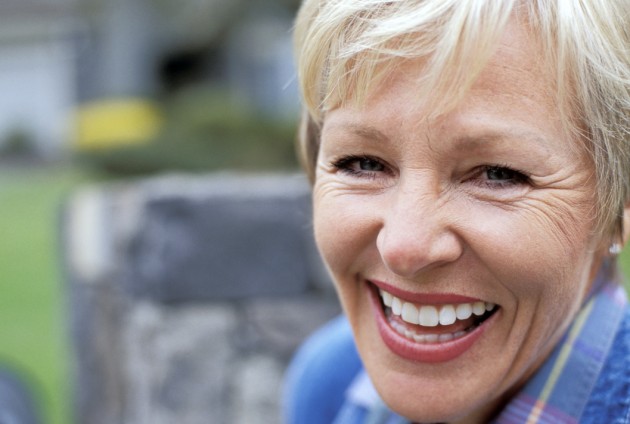Health complaints change over the decades. What worries us at 25 is very different than our concerns at 40. We asked the HuffPost Lifestyle Facebook community to tell us what they worried about most and then conferred with experts. Here's what we learned. (Find them all here.)
We asked: What is your biggest health worry?
You answered: "Living too long. As long as I am healthy and don't require ongoing medical care, I'm happy to be here. But as soon as I have to fully depend on others for my care, I'm out of here!"
The perks of being a 60-something
When we informally surveyed our readers about their health fears, we were pleasantly surprised with the positive outlook that many older women -- particularly those in their 60s -- had about their health.
And there's a lot to be thankful about once you've reached age 60. "There’s so much anxiety about reproductive health," said Dr. Cheryl Iglesia, who specializes in pelvic medicine and reconstructive surgery at the MedStar Washington Hospital Center. "First, you’re in you teens and 20s trying to prevent [pregnancy], then you’re in your 30s and 40s not being able to get pregnant. It causes a lot of distress. After your 50s -- que sera, sera -- you’ve accepted it. Either you’ve had it or not, and you don’t have to worry about it anymore. It’s nice."
Preparing for what's to come
Our readers did express worry about aging, however, particularly over the prospect of losing independence and mobility in their twilight years, and becoming a burden on their loved ones should they no longer be able to take care of themselves.
In Iglesia's opinion, the best way to guard against fears about losing independence is to create an advanced directive: a legal document detailing end-of-life care decisions long before they actually need to be put in place. Iglesia -- whose own living will (created with her husband and an attorney) includes the couple's wishes regarding respirators, feeding tubes, long-term care insurance and power of attorney -- stressed the importance of creating a plan as soon as you have children, then updating it each decade thereafter.
"It’s so much easier on your family to have that plan in place," she said. "You never know when you are going to die."
Chronic pain and arthritis
Women in the United States are living longer than ever, with those who reach the 65-year benchmark expected to live until age 86 on average, two years longer than their male counter parts. Of course, day-to-day aches and pains, as well as more serious health conditions, tend to get worse as you age.
With age comes arthritis, the most common cause of disability, which affects 53 million adults, according to the Centers for Disease Control and Prevention. It's a health condition that can quickly snowball. If joint pain prevents women from getting enough physical activity, they run a greater risk of developing additional chronic conditions, like Type 2 diabetes and heart disease. And while it might seem counterintuitive, the primary antidote to arthritis pain is movement.
“People control their pain by doing less physical activity,” Dr. Jungwha Lee, a biostatistician at Northwestern University's Feinberg School of Medicine, told the New York Times in April. “But being more active can delay the functional decline that accompanies aging. Any activity is better than being sedentary.”
Small lifestyle changes -- like parking farther away at the grocery store and making an effort to avoid sitting for long periods of time -- can make a big difference, as can maintaining a healthy body weight. Excess body weight puts stress on your joints, so muscle strengthening and healthy weight loss can go a long way toward delaying arthritis and staying mobile for years to come.
Beyond arthritis and end-of-life care the American Congress of Obstetricians and Gynecologists put together an informative checklist of screenings, immunizations and evaluations that are important for women in their 60s.
Fuente: www.huffingtonpost.com
